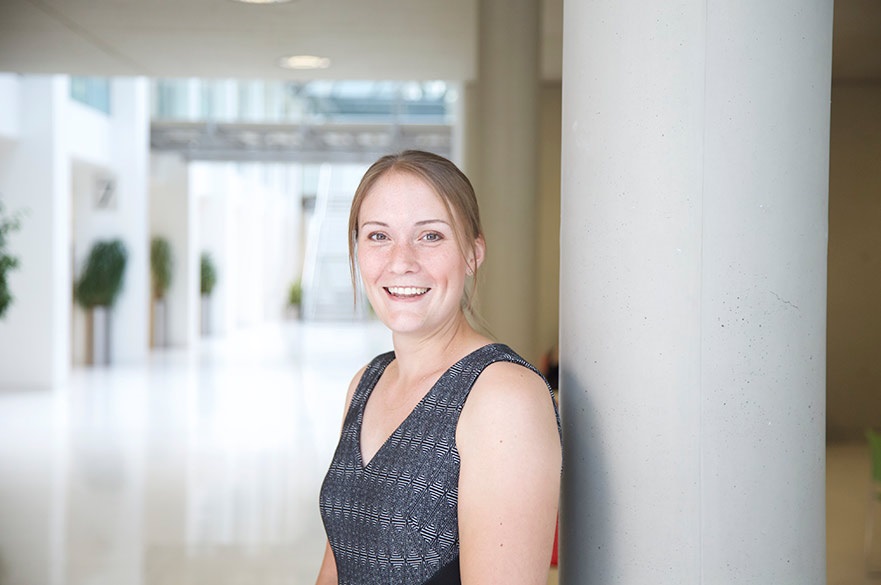One year on: Measuring the impact of Covid-19 on society, communities and the people who managed the pandemic
As the UK entered the first set of lockdown measures one year ago, a new group began working to save lives, reduce harm and support communities. Associate Professor Rowena Hill reflects on the high impact work of the C19 National Foresight Group.
By Helen Breese | Published on 22 March 2021
Categories: Press office; Nottingham Civic Exchange; Research; School of Social Sciences;

The C19 National Foresight Group brought together people from across government departments and a variety of disciplines to focus on identifying and establishing the medium and long-term impacts and challenges of Covid-19.
The pandemic was and will continue to be an emergency for the whole of society, the consequences of which are felt across every aspect and every person within the UK in some way. We focused broadly on two main areas; the impacts on society and communities across the country, and the consequences on the systems and people that manage the pandemic. We then identified across our work what was going well, what was going wrong, maximising the good and minimising the bad.
The impacts on society and communities across the country were broken down into two further areas when we looked at how the evidence could be used by policy makers and decision-makers. Firstly, the impacts of the presence and consequences of the virus itself as a health emergency across our communities, for example the impacts of so many people losing loved ones, the long effects of Covid symptoms, the impacts on communities or within organisations of having people with symptoms. Secondly, the necessary actions to manage the transmission of the virus rather than the virus itself, this has deep and painful consequences and continues to hurt our communities; the collective trauma, the disruption to lives, education, training and work, the impacts on the economy and long term closures of certain sectors, the consequences to wellbeing and health of increasing economic insecurity. At times, this was emotionally hard for our teams to write about as the impact was so painful and life altering for those communities concerned.
The second broad area was the consequences on the systems and people that manage the pandemic. This was as emotionally tough to write about as the impacts on the communities, but for different reasons. This is an all too often overlooked and undiscussed area about structures, flow of decisions and communications. But we all know that in any organisation, when a management system is disrupted or not working as effectively as it should, the consequences for all those involved are problematic. When this is scaled up to a national management process spanning a nation, this becomes inhibiting or limiting to many.
We found the normal processes that usually manage major incidents were built for short, discrete events, incidents such as a fire or flood that we would usually think of as an emergency. When that event becomes large scale and consequentially there is nowhere to bring extra resources or people from, and the systems which should last up to eleven days have to last for years so are not funded or resourced, the normal coordination and decision-making power becomes disrupted. We found that decision-making was drawn up into the central government and the ability to make change was drawn across the public. Consequentially, the local decision-makers are left feeling as though they are restricted to only implementing the central decisions. The ability to make local decisions for local communities is not enabled and frustratingly no longer within their gift. We also found that the communication flow to both the public and the local strategic decision-makers of decisions taken was lacking in timeliness and clarity. There was also a severe absence of appropriate national data to inform decision-making across a broad range of issues and government portfolios. There are many areas which need significant strategic energy and investment in the future to ensure these things are addressed and we have already begun to contribute to these discussions.
We also built a picture of who in society were most at risk of experiencing the impacts. They were often identified to be the same groups of people regardless of risk type; females, those economically less well off, members of BAME communities, those who are older, those with physical and mental health needs. The disadvantaged members of society who experience discrimination were those who were not only at most risk of the virus, but they were also more at risk of multiple consequences of the lockdown measures to manage the transmission rates. These multiple impacts loaded on these at-risk groups in ways that were distressing to visually map and document in our reports. This was imperative to establish at the start to ensure that support could be directed and aimed at those most in need.
Lastly, we established very quickly a long timeline of impacts, our foresight documents – 50 of which have been published - discuss the need for planning of resources and impact assessments three months, six months, 12 months, 24 months, five years, ten years and twenty years onwards. The impacts we feel a year after Covid-19 first entered lockdown are only the beginning of the long tail of consequences and compound effects which will run in to the years and decades ahead.

Associate Professor Rowena Hill
It was a privilege to make such a significant contribution to the group, which was decommissioned at the end of January 2021. We influenced and changed a lot in the time the group was active, illuminating the impacts on both our communities and on the emergency management structures across the nation. We identified what change was needed and what was going well. It is now for others to pick up that learning in their own portfolios and continue to use it in their areas of pandemic management into the months and years ahead.
By Associate Professor of Disaster and Emergency Management Rowena Hill, at Nottingham Trent University’s School of Social Sciences, and embedded scientist and academic liaison for the C19 National Foresight Group.
Note of thanks: I’d like to acknowledge my NTU colleagues who were the epitome of professional, particularly Rich Pickford, Kelly Smith and Professor Nigel Wright, and the colleagues on the C19 National Foresight Group, particularly Shaun West the Chair and commissioner who really saw what universities could produce when partnered well, and Paul Netherton, the visionary who set up the group.
Nottingham Civic Exchange
Nottingham Civic Exchange has been established by Nottingham Trent University to maximise research, policy and practical impact by bringing together university expertise with partners seeking to address the needs of communities. Nottingham Civic Exchange acts as a resource to look at social and economic issues in new ways. This means facilitating debate, acting as a bridge between research and policy debates, and developing practical projects at a local, city and regional level.
Visit our website - www.ntu.ac.uk/nce Contact us - notts.civicex@ntu.ac.uk Follow us - @NottsCivicEx